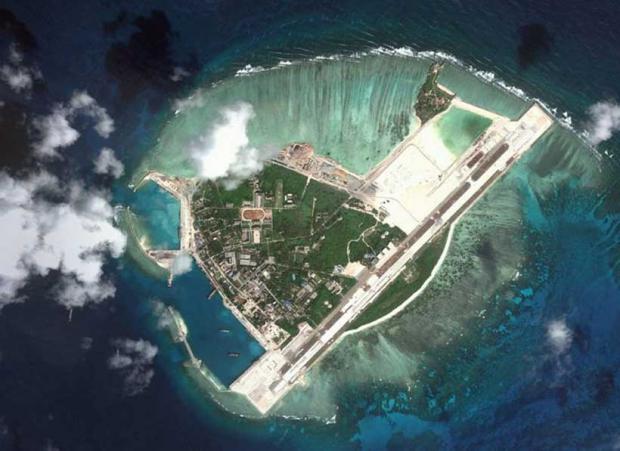
Breaking News
 James O'Keefe: My entire speech at AmericaFest 2025. We're not stopping. Join us to expose..
James O'Keefe: My entire speech at AmericaFest 2025. We're not stopping. Join us to expose..
 U.S. vs. Chinese Military Comparison – Focus on Asia-Taiwan Scenario
U.S. vs. Chinese Military Comparison – Focus on Asia-Taiwan Scenario
 DoJ Sues Four More States for Failing To Produce Voter-roll Data
DoJ Sues Four More States for Failing To Produce Voter-roll Data
 World's Largest Aviation Giant Abandons Google Over Security Concerns
World's Largest Aviation Giant Abandons Google Over Security Concerns
Top Tech News
 Perfect Aircrete, Kitchen Ingredients.
Perfect Aircrete, Kitchen Ingredients.
 Futuristic pixel-raising display lets you feel what's onscreen
Futuristic pixel-raising display lets you feel what's onscreen
 Cutting-Edge Facility Generates Pure Water and Hydrogen Fuel from Seawater for Mere Pennies
Cutting-Edge Facility Generates Pure Water and Hydrogen Fuel from Seawater for Mere Pennies
 This tiny dev board is packed with features for ambitious makers
This tiny dev board is packed with features for ambitious makers
 Scientists Discover Gel to Regrow Tooth Enamel
Scientists Discover Gel to Regrow Tooth Enamel
 Vitamin C and Dandelion Root Killing Cancer Cells -- as Former CDC Director Calls for COVID-19...
Vitamin C and Dandelion Root Killing Cancer Cells -- as Former CDC Director Calls for COVID-19...
 Galactic Brain: US firm plans space-based data centers, power grid to challenge China
Galactic Brain: US firm plans space-based data centers, power grid to challenge China
 A microbial cleanup for glyphosate just earned a patent. Here's why that matters
A microbial cleanup for glyphosate just earned a patent. Here's why that matters
 Japan Breaks Internet Speed Record with 5 Million Times Faster Data Transfer
Japan Breaks Internet Speed Record with 5 Million Times Faster Data Transfer
China's floating nuke plants up South China Sea ante

China's controversial plans to deploy floating nuclear reactors in the South China Sea could recalibrate the region's power dynamics while sparking dangerous new tensions with the United States and its regional partners and allies.
This month, The Washington Post reported that China is pursuing plans to develop floating nuclear reactors that could power military bases on its artificial islands in the South China Sea. The report says that China is pushing ahead with the plans even though the international community has not yet agreed on standards governing the safe use of floating reactors.
Admiral John Aquilino, head of the US Indo-Pacific Command, has warned that China's use of floating nuclear power plants could negatively impact the region while emphasizing that the plan would strengthen China's various claims in the hotly disputed maritime area.
China has contested claims in the sea with the Philippines, Vietnam, Malaysia, Indonesia and Taiwan, each boiling at different temperatures. A United Nations arbitral tribunal ruled in favor of the Philippines against China over their contested claims in 2016, a ruling Beijing has ignored.
The US State Department is also concerned that China's deployment of floating nuclear power plants could raise new risks to US national security and potentially escalate already-tense regional security dynamics.
The sea-based nuclear plants would help to solidify China's occupation of various artificial islands it has built up and militarized in recent years in the maritime area. The plants would pose more significant risks than US nuclear submarine visits at overseas ports, the Washington Post report says.
Currently, only Russia operates a floating nuclear reactor, known as Akademik Lomonosov and launched in December 2019. It is powered by two KLT-40S reactors aboard Russian nuclear icebreakers and two steam turbines.

 Advanced Propulsion Resources Part 1 of 2
Advanced Propulsion Resources Part 1 of 2

